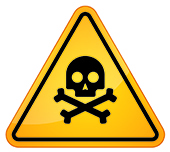Police slap warning banner ads on ‘pirate’ sites
 The City of London Police has started removing legitimate ads on websites believed to be serving up pirated content, and has been replacing them with warning banner ads.
The City of London Police has started removing legitimate ads on websites believed to be serving up pirated content, and has been replacing them with warning banner ads.
The banners are shown by UK publications but aren’t likely to show up when the sites are viewed from other countries.
The BBC published a screenshot of how the ad looks on an unauthorized MP3 site.
The banner advises visitors that a given site has been reported to the police and asks them to close the page per the Police Intellectual Property Crime Unit (PIPCU).
PIPCU on Tuesday said in a release that this is the next step in Operation Creative: a global project in which PIPCU, in partnership with the creative and advertising industries, is trying to disrupt and prevent websites from distributing pirated content.
The technology underpinnings of this advertising bump-out is provided by a content verification technology provider, Project Sunblock, which swaps out legitimate adverts for the police banners.
Operation Creative has already knocked 40 national and international websites offline, succeeding in getting them suspended by their domain name registrars.
PIPCU says that the sites plastered with the new banners have been identified and reported to PIPCU by rights holders claiming that the sites engaged in illegal copyright infringement.
PIPCU contacts the sites to offer the opportunity to “engage with the police, to correct their behaviour and to begin to operate legitimately”, it says.
If the site doesn’t play ball, PIPCU says it may do a number of things: seek to suspend it with the domain registrar, or replace its adverts and disrupt advertising revenue through the use of the Infringing Website List (IWL).
But as Torrentfreak reports, with this blocklisting comes the serious risk of overblocking, in which perfectly legal sites may end up losing advertising opportunities if they wrongfully make it onto the block list.
Beyond the confusion of trying to figure out who really should be blocked, blockading legitimate advertising has serious side effects in terms of security.
An earlier, three-month pilot designed to disrupt advertising revenues on alleged infringing sites produced a mixed bag: the sites’ ad revenues were in fact dented, but malware redirects also filled in the hole left by removing regular advertising.
Some stats and rationale from the International Federation of the Phonographic Industry (IFPI), the organization that represents the interests of the recording industry worldwide:
- During the pilot, adverts from well-known brands decreased by 12%;
- Adverts that led the user to sites with explicit adult content or [which exposed] them to malware increased by 39% during the pilot, indicating that site owners may struggle to maintain their revenue streams when adverts from established brands are removed;
- Almost half (46%) of total ads served to the sites were for unknown or unidentified brands which invited users to click through, often to fraudulent scams.
The head of PIPCU, DCI Andy Fyfe, said in the release that the removal of legitimate ad banners is helping to protect consumers:
When adverts from well known brands appear on illegal websites, they lend them a look of legitimacy and inadvertently fool consumers into thinking the site is authentic.
Maybe so. But the side effect of increasing malware is certainly not going to protect consumers.
Just because alleged pirate sites are being starved of legitimate revenues doesn’t mean they won’t be able to get revenues from bad players.
And it will be consumers, not the recording industry, who suffer.
Image of pirate warning courtesy of Shutterstock.
Article source: http://feedproxy.google.com/~r/nakedsecurity/~3/uECbDPIUo_s/